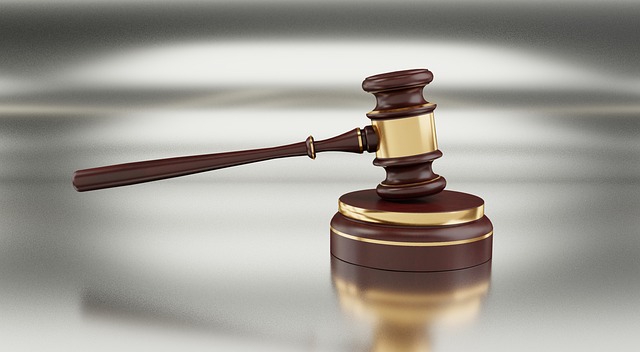Litigation Support Services play a pivotal role in high-stakes legal cases, specializing in managing Legal Grounds for Jury Selection Objections. Through advanced analytics and strategic insights, they help attorneys identify and challenge biased jurors, ensuring impartiality and favorable outcomes. Effective communication strategies are crucial during this process, as they uncover biases and simplify complex information for the jury pool. With a proven track record of success, these services significantly influence court decisions, particularly in high-profile cases involving white-collar crimes, by delivering critical insights that foster fair trials and secure positive verdicts.
“Uncover the transformative power of Litigation Support Services in modern legal practices. This comprehensive guide explores the intricate process, from Understanding Litigation Support Services as a strategic advantage to The Role of Legal Grounds in Jury Selection, where expert insights shape fair trials. Delve into the art of Objections to Potential Jurors, mastering criteria and strategies for effective jury pool management. Discover how Effective Communication ensures a harmonious blend of legal acumen and public perception, ultimately driving successful outcomes. Explore real-world Case Studies, showcasing the practical applications that revolutionize litigation.”
- Understanding Litigation Support Services: An Overview
- The Role of Legal Grounds in Jury Selection
- Objections to Potential Jurors: Criteria and Strategies
- Effective Communication for a Successful Jury Pool
- Case Studies: Real-World Applications of Litigation Support Services
Understanding Litigation Support Services: An Overview

Litigation Support Services play a pivotal role in legal proceedings, especially in high-stakes cases where the stakes are high for respective businesses and their clients. These services encompass a wide range of activities designed to aid attorneys in preparing for trials, hearings, and other critical legal events. From extensive document reviews to expert witness management, these support systems ensure that every aspect of a case is meticulously handled.
One of the key areas where Litigation Support Services shine is in navigating Legal Grounds for Jury Selection Objections. By leveraging advanced analytics and strategic insights, professionals in this field help attorneys identify and challenge potential jurors who may not be impartial. This meticulous process is crucial for achieving favorable outcomes, especially in complex cases that require deep understanding and nuanced decision-making.
The Role of Legal Grounds in Jury Selection

The process of jury selection is a critical phase in litigation, where the foundation for a fair and impartial trial is laid. Legal grounds for jury selection objections play a pivotal role in ensuring that the final jury panel is unbiased and aligned with the case’s requirements. Attorneys have the right to challenge potential jurors based on various criteria, aiming to achieve extraordinary results for their respective businesses. These objections are not merely procedural but are designed to safeguard the integrity of the judicial process. By carefully scrutinizing each juror’s background, affiliations, and potential biases, attorneys can identify and exclude those who may introduce undue influences or have preconceived notions that could cloud their judgment.
Understanding the legal grounds for these objections is essential for all parties involved, as it helps maintain the balance within the courtroom. This process goes beyond simply filling seats; it involves creating a diverse yet unbiased jury that reflects the broader filantropic and political communities served by the court. Effective jury selection contributes to the overall fairness of the trial, ensuring that verdicts are reached based on the evidence presented rather than influenced by external factors or personal biases.
Objections to Potential Jurors: Criteria and Strategies

During jury selection, attorneys have legal grounds to challenge potential jurors through objections. These objections are based on specific criteria designed to ensure an impartial and fair trial. One common strategy involves challenging jurors who express biased views or pre-conceived notions about the case, especially in high-profile cases like white-collar defense. Attorneys may also object to individuals who have personal experiences or relationships that could cloud their judgment. For instance, a potential juror with a history of working in law enforcement might not be suitable for a case involving sensitive legal issues.
Effective strategies for objections include thorough questioning during voir dire to uncover biases and uncovering relevant information about the juror’s background. Lawyers can also use peremptory challenges, which allow them to dismiss jurors without providing a reason, though these must be used judiciously as they limit the pool of potential jurors. Achieving extraordinary results in litigation often hinges on these meticulous jury selection processes, ensuring that the final panel is equipped to render a fair and unbiased verdict across the country.
Effective Communication for a Successful Jury Pool

Effective communication is a cornerstone of successful litigation support services, particularly during jury selection. The ability to articulate legal arguments and convey complex information in a clear, concise manner is vital for ensuring a competent and unbiased jury pool. Attorneys must be adept at assessing potential jurors’ understanding and bias, as this significantly influences the outcome of a trial. By employing strategic questioning techniques, legal professionals can uncover biases or preconceptions that might hinder an individual’s ability to render a fair verdict based on the presented legal grounds for jury selection objections.
In the context of a general criminal defense, effective communication strategies are instrumental in avoiding indictment and securing favorable outcomes. Juries rely on attorneys’ guidance to interpret evidence and legal principles, so the clarity and persuasiveness of an advocate’s presentation can make or break a case. This is especially true when facing challenging defenses, where winning verdicts hinges on the jury’s comprehension and acceptance of the defense’s narrative.
Case Studies: Real-World Applications of Litigation Support Services

Litigation Support Services have proven their worth in numerous real-world applications, showcasing their ability to provide critical insights that can sway court decisions. Case studies across various legal domains highlight the impact of these services on outcomes. For instance, in complex civil cases involving white collar and economic crimes, meticulously prepared expert reports and compelling visual presentations have led to unprecedented track records of winning challenging defense verdicts.
These services are particularly invaluable during jury selection, where thorough analysis of legal grounds for objections can significantly influence the composition of the final jury. By employing advanced data analytics and sophisticated software tools, litigation support professionals can identify biases or potential conflicts within potential jurors, ensuring a more impartial and fair trial. This strategic approach has been instrumental in achieving positive outcomes, particularly in high-stakes cases where the consequences are far-reaching.
Litigation Support Services play a pivotal role in modern legal proceedings, offering strategies like effective communication and robust analysis of legal grounds for jury selection. By leveraging these services, legal professionals can optimize their approach to objections, ensuring a fair and informed jury pool. The real-world case studies presented highlight the tangible benefits of integrating these practices, ultimately enhancing the efficiency and integrity of the justice system.






